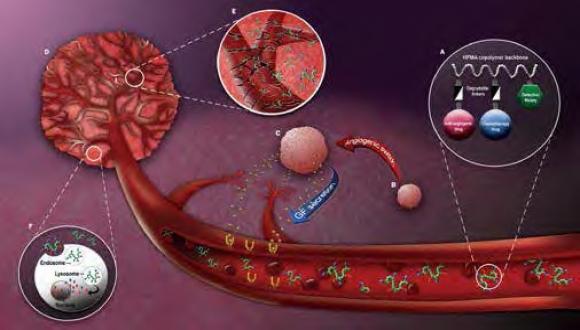Angiogenic Switch Using Rationally-Designed Theranostic Nanomedicines
Prof. Ronit Satchi-Fainaro, Ph.D.
Department of Physiology and Pharmacology
Prof. Ronit Satchi-Fainaro, Ph.D.
Department of Physiology and Pharmacology
Our research interests include investigations relating to tumor biology, tumor dormancy, mechanism of action of angiogenesis inhibitors, self-assembly of polymeric architectures and novel approaches to target cancer. Throughout, we have maintained an interest in understanding the biological rationale for the design of polymer therapeutics suitable for transfer into clinical testing.
Our primary interests are the molecular basis of tumor angiogenesis and the rational design of polymer therapeutics. Our research includes identification and characterization of genes and microRNAs associated with the switch from a dormant avascular tumor phenotype to a fast-growing angiogenic tumor in human cancers and their corresponding mouse models. We focus on the design and characterization of novel drug delivery platforms, including dendrimers and hyperbranched polymer–based nanoparticles, and the design of highly-selective targeting molecules integrating biology, chemistry, protein engineering, computational approaches, material sciences
and nanotechnology to selectively guide drugs into pathological sites.
Our vision is that novel approaches to target anticancer, anti-angiogenic drugs, miRNA and siRNAs to endothelial and tumor cells to potentially treat angiogenesis-dependent diseases could transform cancer into a chronicallymanageable disease. Research methods used include sequencing, gene cloning, quantitative RTPCR, immunofluorescence, cell culture, scanning electron microscopy, mass spectrometry, NMR, HPLC, in situ hybridization, bioinformatics, polymer chemistry, molecular imaging, angiogenesis assays, animal models of cancer (human xenografts in mice, syngeneic and transgenic mice models),
pharmacokinetics and pharmacodynamics.


